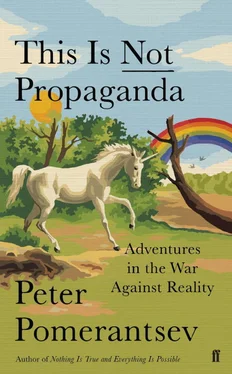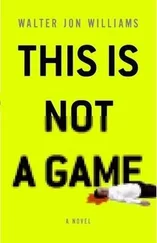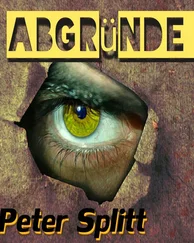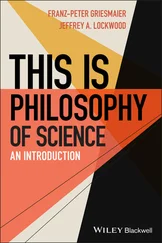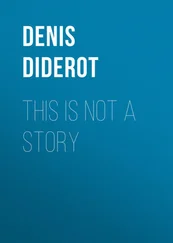The old associations were imperfect, often false. But they also held within them the memory of why they had mattered in the first place. Certain images and language were taboo because they acted like little knots tying in a notion of the unacceptable. Now these little knots are coming loose. In 2018, in Hungary, you could see government posters accusing Jewish financiers of undermining the nation, in visual motifs reminiscent of the 1930s, but at the time they didn’t stop an ever-closer alliance between the Hungarian president and the Israeli prime minister, as if the latter no longer cared whether he was friends with someone who drew on Nazi codes. In the US, when criticism of the president is labelled ‘McCarthyism’ or Russia’s trolls are compared to 9/11 or Pearl Harbor, the references are so shorn of context one imagines the wreckage from a plane crash in a desert, with commentators wandering around beating jet engines with spanners to make a spectacular sound that has no relation to the thing they’re beating. In Britain the best-selling newspaper accuses independent judges of being Enemies of the People, calls for the crushing of saboteurs who oppose the government, in language popularised in the Soviet Union to validate mass murder, and whose use today only serves to debase the memory of those misdeeds.
When I began working on the passages about my parents in this book, I started off looking at how much has changed between the centuries, how the calcified words ‘freedom’, ‘democracy’, ‘Europe’, even whole genres of art have had their meaning stripped or hacked. Instead, I found myself awakening to the experiences which gave those words their power, which opens up the possibility for their regeneration in the future.
In a week’s time we will be heading home to London, and I will be walking the boys up the hill to school. It’s a Victorian pile, and when you walk in there are flags of all the nationalities of the children who attend. It looks like the UN, and I don’t know half the flags. What reconfigurations of identity will play on this? Will there be ever more intense iterations of ‘people’ and ‘non-people’? I keep on waiting for the questions from the twins to start. Are we English or Russian? Jewish? European? Ukrainian? What do any of those words mean? Already I am worrying about what to answer.
‘The real you will emerge in the collisions between them! Consider Chernivtsi!’
I wonder if they will understand if I quote Igor to them? Or has something been passed on already?
The other day the twins were in a playground in the local park. Another child came up to them and began asking, ‘What are you? Who are you? Tell me.’
There was a pause. What would the twins answer? Which nation, creed, tribe, ‘in’ or ‘out’ group would they claim as theirs? What clue would it give us for the future?
The twins considered the question seriously. Then they turned and said, in unison, ‘I’m Superman.’
The other boy answered, ‘And I’m Batman.’
This book draws on essays published in Granta, the Guardian, American Interest magazine and the London Review of Books. I would like to thank my editors there for giving me the opportunity to develop my ideas. None of this would have been possible without the support and advice of Sigrid Rausing, Luke Neima, Pru Rowlandson, Jonathan Shainin, Damir Marusic, Daniel Soar, Mary-Kay Wilmers and Thomas Jones.
Zinovy Zinik, Frank Williams, Seva Novgorodtsev, Peter Udell, Masha Karp and Diran Meghreblian provided extensive and insightful background on the history of the BBC’s Russian Service. Sergey Danilochkin and Arch Puddington did likewise for Radio Free Europe. Martin Dewhurst has been a source of many gems over the years. Michael Zantovsky advised on Václav Havel; Mario Corti on the Chronicle of Current Events.
Chloe Colliver and Melanie Smith have been most kind in helping me understand the basics of data analysis and ‘the space’. Nick Cull has been a fount of knowledge about the history of propaganda. Thanks also to Leonard Bernardo and Chris Walker.
Ant Adeane was my excellent producer for the BBC Radio 4 Analysis programmes mentioned: ‘British Politics: A Russian View’ (broadcast 9 July 2018) and ‘The War for Normal’ (broadcast 28 January 2019). He, Anne Applebaum, Daniel Soar and Ben Williams have provided vital editorial support. Carolina Stern has been a terrific colleague at the LSE, helping me with numerous translations.
I owe a huge debt of gratitude to Paul Copeland and my parents for all their time, patience, multiple rereads and improvements. My aunt Sasha has been unstinting in her support, while my wife and children have been exceedingly understanding.
Igor Pomerantsev extracts: Reading Faulkner, translated by Frank Williams, with adaptations by Peter Pomerantsev; ‘KGB Lyrics’, translated by Frank Williams; ‘Eye and a Tear’, translated by Peter Pomerantsev ( Sintaksis, 1979); ‘Right to Read’, translated by Marta Zakhaykevich ( Partisan Review, vol. 49, no. 1, 1982); ‘Radio Times’, translated by Frank Williams.
Lina Pomerantsev documentaries: Tripping with Zhirinovsky, directed by Paweł Pawlikowski, released 1995; The Betrayed, directed by Clive Gordon, released 1995; Mother Russia’s Children, directed by Tom Roberts, released 1992.
Radio programme referenced in the text: ‘Reading Faulkner’, narrated by Ronald Pickup, broadcast on BBC Radio 3, 2 August 1984.
Peter Pomerantsevis a Senior Fellow at the Institute of Global Affairs at the London School of Economics, studying twenty-first century information manipulation and how to fix it. An author and TV producer, he is a widely cited expert on disinformation and media, and writes for publications including Granta, The Atlantic and the Financial Times. His first book, Nothing is True and Everything is Possible, won the 2016 Royal Society of Literature Ondaatje Prize, and was nominated for the Samuel Johnson, Guardian First Book, Pushkin House and Gordon Burn Prizes. It has been translated into over a dozen languages.
NOTHING IS TRUE AND EVERYTHING IS POSSIBLE: ADVENTURES IN MODERN RUSSIA

First published in 2019
by Faber & Faber Ltd
Bloomsbury House
74–77 Great Russell Street
London WC1B 3DA
This ebook edition first published in 2019
All rights reserved
© Peter Pomerantsev, 2019
Cover design by Faber
Design by Keenan
Unicorn element of cover © Getty
The right of Peter Pomerantsev to be identified as author of this work has been asserted in accordance with Section 77 of the Copyright, Designs and Patents Act 1988
This ebook is copyright material and must not be copied, reproduced, transferred, distributed, leased, licensed or publicly performed or used in any way except as specifically permitted in writing by the publishers, as allowed under the terms and conditions under which it was purchased or as strictly permitted by applicable copyright law. Any unauthorised distribution or use of this text may be a direct infringement of the author’s and publisher’s rights, and those responsible may be liable in law accordingly
ISBN 978–0–571–33865–8
Читать дальше
